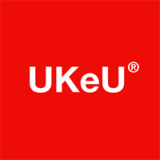TESOL UKUK Academic Professional Competency Framework




Level 7 Academic Professional Competency Framework
- Teaching Specialism: This role focuses on developing and innovating teaching methods, supporting diverse learners (including those with disabilities), applying technology in education, fostering independent learning skills, and enhancing the quality of learning from college to doctoral levels.
- Research Specialism: This role centres on leading research projects, securing and managing funding, collaborating with external organisations, publishing research findings, and overseeing comprehensive research activities that go beyond standard scholarly contributions.
KSBs for the position of "Academic Professional" under the UK National Competency Framework
KNOWLEDGE
SKILLS
BEHAVIORS


Detailed competency framework
Professional Role in Teaching
Academic Professionals specialising in teaching go beyond basic instructional abilities to play a leading role in developing modern teaching and learning methods, as well as innovative approaches to assessment and pedagogy. They possess advanced skills in supporting diverse groups of learners, including those with learning difficulties; effectively teaching information literacy and analytical skills; and integrating technology to enhance learning outcomes. They also promote students’ independent learning capabilities and design creative teaching methods applicable from college to doctoral levels (corresponding to levels 4–8 of the UK Framework for Higher Education Qualifications for England, Wales, and Northern Ireland).
Professional Role in Research
Academic Professionals focusing on research are capable of leading research projects — from identifying opportunities, competing for and managing funding, to overseeing project delivery and disseminating findings. They often participate in or lead research teams addressing major societal challenges and meeting the expectations of both public and private funding bodies. Compared to entry-level researchers, they demonstrate superior competence in research management, supervision, and resource allocation, as well as in external collaboration and the publication and dissemination of research outputs. This role extends far beyond simply contributing new knowledge within a narrow academic discipline, encompassing a broader and more strategic impact on research and innovation in higher education.
Academic Professionals will have knowledge and understanding of:
- Diverse teaching, assessment, and feedback methods in higher education to support learning and achievement.
- How students learn and how to adapt teaching approaches to meet different learner needs.
- How to conduct research within their discipline, across related fields, and within interdisciplinary or cross-sector contexts.
- Processes of management, administration, finance, planning, risk management, quality assurance, and enhancement, and how these relate to their role in higher education.
- Technological processes associated with efficiency and effectiveness in higher education practice.
- Methods for evaluating the effectiveness of academic activities such as teaching quality and research impact.
- Ways of engaging with professional bodies and external organisations to support their work.
- The principles of reflective practice and how to apply reflection to personal professional development.
- Innovative approaches to engaging, inspiring, and motivating students, sponsors, or stakeholders.
Professional Role in Teaching:
Academic Professionals specialising in teaching will have advanced knowledge and understanding of:
- The latest research in their discipline and pedagogy to support the development of enhanced teaching practice in learning environments.
- Complex information management and advanced digital literacy.
- The disciplinary knowledge base and methods that enable learners to access, engage with, and master content effectively.
- The application of a wide range of technologies and digital skills in teaching and learning.
- Approaches to curriculum design, monitoring implementation, and evaluating the effectiveness of modules, qualifications, and programmes as a whole.
Professional Role in Research:
Academic Professionals specialising in research will have advanced knowledge and understanding of:
- Current issues and debates within the research literature in their field of expertise.
- Research theory and the practical application of a full range of research methodologies.
- New and emerging approaches to research management, including maintaining progress in line with requirements.
- Major funding sources and grant schemes relevant to their research area.
- The use of diverse technologies and advanced digital skills to support investigation, analysis, and dissemination of research outcomes.
Academic Professionals will be able to:
- Deliver high-quality higher education teaching through lectures, discussions, practice sessions, and seminars.
- Apply a variety of teaching styles appropriate to different learning environments and student needs.
- Formulate research questions and hypotheses prior to conducting disciplinary investigations.
- Analyse, synthesise, and apply critical thinking in research.
- Supervise and mentor students and colleagues to support knowledge development within their field.
- Implement inclusive teaching methods that promote equality and diversity.
- Communicate effectively in both oral and written forms, collaborating to manage people, processes, or teams.
- Use digital technologies effectively to develop and disseminate disciplinary knowledge.
- Share ideas and evidence with students, colleagues, policymakers, and both public and private organisations through multiple channels, including publications and teaching.
- Gather evidence of impact through student feedback, surveys, or academic citations.
- Manage personal Continuous Professional Development (CPD) within their discipline and pedagogy, including research, scholarship, and professional practice.
- Manage time effectively by preparing, prioritising, adapting to change, and maintaining a healthy work–life balance.
Professional Role in Teaching
Academic Professionals specialising in teaching will be able to:
- Play a leading role in developing and applying innovative teaching and assessment techniques to deliver high-quality learning across multiple modules and levels.
- Create new learning materials for higher education, oversee implementation, and evaluate the design of modules, qualifications, and programmes.
- Design varied teaching environments to enhance student engagement and learning outcomes.
- Integrate disciplinary and pedagogical research into teaching and scholarship to drive quality improvement and innovation.
- Analyse, synthesise, and apply critical reflection to share pedagogical knowledge and engage with quality and enhancement initiatives.
Professional Role in Research
Academic Professionals specialising in research will be able to:
- Formulate research questions and select appropriate methodologies within competitive funding contexts.
- Manage research projects and budgets effectively, including risk assessment and ethics approval where required.
- Generate new knowledge and innovations within their field to share with students, peers, and external stakeholders.
- Author or co-author research publications and disseminate findings through a variety of academic and professional channels.
- Develop and maintain partnerships with businesses and external organisations to expand collaboration and access to research funding opportunities.
Academic Professionals are expected to focus on:
- Ethical, sustainable, and inclusive professional practice that ensures equality of opportunity.
- Continual development of knowledge and understanding related to professional management, seizing opportunities, building networks, reputation, and professional standing.
- A strong commitment to Continuous Professional Development (CPD) addressing contemporary themes such as student employability, graduate destinations, ethics and sustainability, academic integrity, legal and intellectual property compliance, respect, confidentiality, and health and safety.
- Applying evidence-based approaches and insights from research, scholarship, and CPD to enhance professional practice.
- Understanding and reflecting on the broader context—policy, economic, social, technological, legal, cultural, and environmental—within which higher education operates, and recognising their impact on the profession.
- Seeking opportunities for networking, public engagement, and effective communication.
- Maintaining enthusiasm, confidence, and self-reflection to perform effectively in their professional role.
- Department for Business, Energy & Industrial Strategy – UK Department for Business, Energy & Industrial Strategy
- Department for Education – UK Department for Education
- Dylan Wiliam – Professional development resources
- Excellence Gateway – Quality education portal
- Informal Education – Non-formal education resources
- Geoff Petty – Online teaching resources
- Office for Standards in Education (Ofsted) – Office for Education Standards
- Society for Education and Training – Society for Education and Training
- Department for Business, Energy & Industrial Strategy – UK Department for Business, Energy & Industrial Strategy
- Department for Education – UK Department for Education
- Dylan Wiliam – Professional development materials
- Excellence Gateway – Teaching and learning resources portal
- Informal Education – Non-formal education
- Geoff Petty – Online teaching resources
- Ofsted – Office for Standards in Education
- Society for Education and Training – Society for Education and Training
- Dylan Wiliam – Professional development resources
- Excellence Gateway – Teaching and learning resources portal
- Informal Education – Non-formal education
- Geoff Petty – Online teaching resources
- Ofsted – Office for Standards in Education
- Society for Education and Training – Society for Education and Training
- Dylan Wiliam – Professional development materials
- What is Pedagogy? – Understanding the concept of pedagogy (Tes)
- Excellence Gateway – Teaching and learning resources portal
- Informal Education – Non-formal education
- Geoff Petty – Online teaching resources
- Ofsted – Office for Standards in Education
- Society for Education and Training – Society for Education and Training
- Dylan Wiliam – Professional development materials
- What is Pedagogy? – Understanding pedagogy and reflective educational theory (Tes)
- Excellence Gateway – Teaching and learning resources portal
- Informal Education – Non-formal education and experiential learning
- Geoff Petty – Online teaching and reflective practice resources
- Ofsted – Office for Standards in Education
- Society for Education and Training – Society for Education and Training
- Quality Watch – Monitoring quality in health and social care
- SCIE Research Briefings – Short research summaries by SCIE (The Learning Exchange)
- Department for Business, Energy & Industrial Strategy – UK Department for Business, Energy & Industrial Strategy
- Department for Education – UK Department for Education
- Dylan Wiliam – Professional development materials
- Excellence Gateway – Teaching and learning resources portal
- Informal Education – Non-formal education
- Geoff Petty – Online teaching resources
- Ofsted – Office for Standards in Education
- Society for Education and Training – Society for Education and Training
- Open Educational Research Assets (OPERA) – Open-access research materials in education

Integrated Competency FrameworkMaster of Arts in TESOL
Contact for Advice
Book your visit






